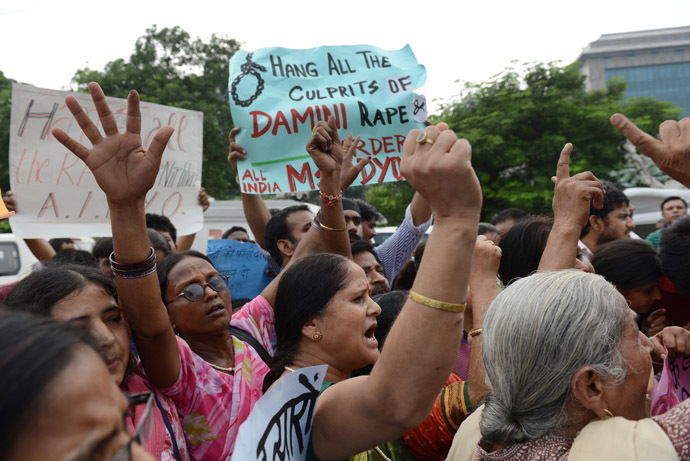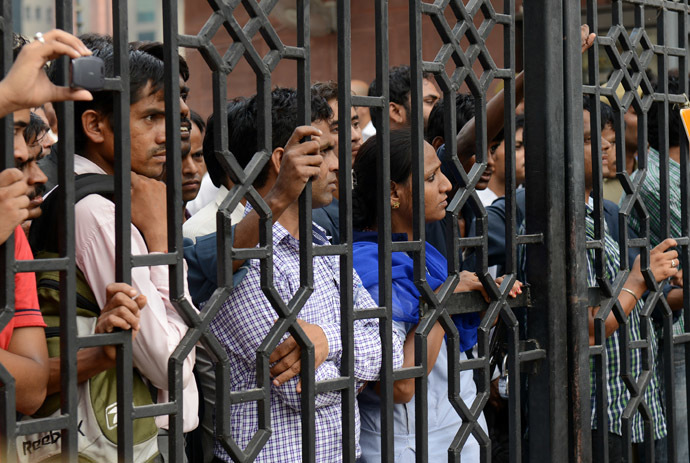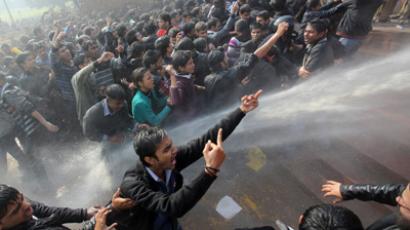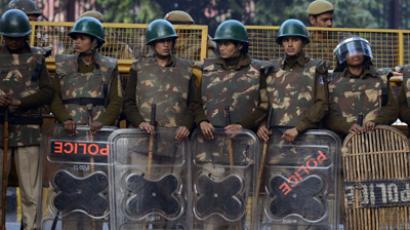4 attackers in Delhi gang rape case sentenced to hang
An Indian court has sentenced four men to the death penalty for the rape and murder of a 23-year-old student on a Delhi bus last December. The judge rejected pleas for a lighter sentence and condemned the men to be hanged to death.
The sentence has to be confirmed by the Indian High Court before
it can be carried out. Before this time the men may appeal to the
High Court and ask for clemency from the president.
On Tuesday this week, Vinay Sharma, Akshay Thakur, Mukesh Singh
and Pawan Gupta were found guilty of the rape and murder of the
young woman in New Delhi back in December 2012. After previously
appealing for a lighter sentence, defense lawyers said that if
hanging the men prevents further incidents of rape in India, then
they might choose not to appeal the ruling in the High Court.
Delhi gang-rape case: If hanging them prevents incidents of rape in India, we will not appeal in High Court, says Defence lawyer.
— NDTV (@ndtv) September 13, 2013
Judge Yogesh Khanna said that Indian courts could not “turn a
blind eye” to such crimes that had “shocked the collective
conscience” of India.
"This case definitely falls in the rarest of rare categories
and warrants the exemplary punishment of death," he stressed.
The victim’s father spoke to press following the ruling and said he was “happy our girl has got justice.”
The people of Delhi voiced their approval of the verdict, hailing
it as a positive step in the fight against violence against
women.

“This is a very good decision. I think this will be effective
in reducing crime against women as people will be scared. This
should become a precedent in such cases,” said activist Rekha
Palaria to Reuters. While 48-year-old street vendor Ashok Gupta
said that the ruling was what people had been waiting for.
“This should have happened long ago. I think this will instill fear in people. And they will think before they commit any crime against women,” Gupta told Reuters.
In addition to the four men, a 17-year-old teenager was sentenced to three years in a reform facility after being found guilty in August of participating in the rape. As he was technically a minor under Indian law when the crime was committed, three years was the maximum possible sentence he could receive.
According to a police spokesperson, the teenager was the most violent, and apparently “sexually abused his victim twice and ripped out her intestines with his bare hands."

Another suspect, Ram Singh, was believed to have committed
suicide in custody in March. Police say that the suspect hanged
himself, but Singh’s family alleges that he was murdered.
Protesters gathered outside the courthouse in Delhi prior to the
ruling, calling for the death sentence for the four men.
The 23-year-old trainee physiotherapist was going home on the bus after seeing a film with a male friend when she was attacked by five men and a teenager on December 16. The girl was dragged to the back of the bus, while her friend was beaten unconscious with a metal bar by assailants. Medical reports say the victim sustained severe injuries to her abdomen, intestines and genitals in the attack.
Both victims were dumped on the side of the road following the attack. The student died two weeks later in a Singapore hospital.
The incident triggered massive protests across India, calling for an end to the mistreatment of women. It also ignited an intense debate over sexual violence and the rights of women in India which in turn resulted in some legal reforms.














